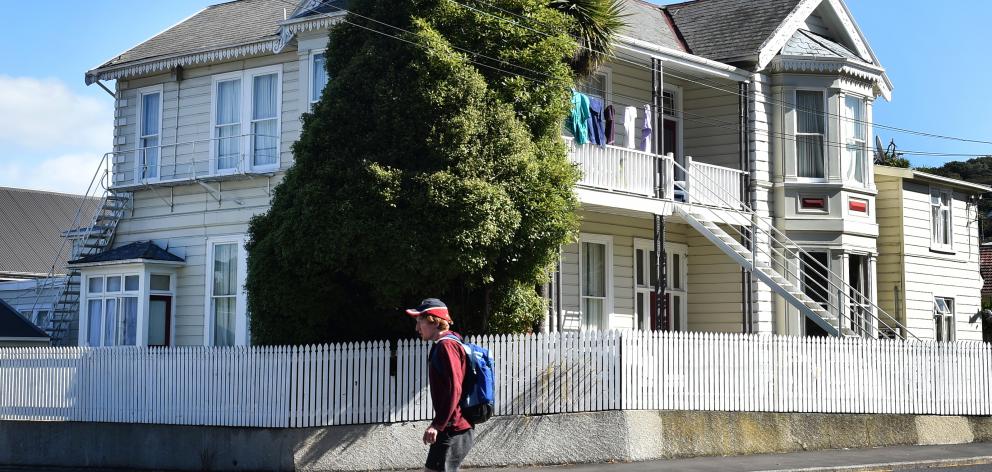
Student magazine Critic said the practice of boarding house landlords requiring students to sign fixed-term agreements was believed to be widespread.
The magazine cited a Tenancy Tribunal case where a property rented as separate studio rooms with fixed-term leases was ruled to be a boarding house.
This is against the law, which requires that tenants of boarding houses are allowed to end their tenancy with 48 hours’ notice.Tenancy Services, which is part of the Ministry of Business Innovation and Employment (MBIE), defines a boarding house as when a tenant rents a room rather than a whole house.
Boarding houses are occupied, or intended to be occupied, by at least six tenants at any time and facilities such as the kitchen and bathroom are shared.
University of Otago campus and collegiate life services director James Lindsay said it was aware of the issue.
"We believe that some property owners are not aware of their obligations with regards to boarding house tenancies," Mr Lindsay said.
He pointed to a 2013 High Court decision which overrode any previous decision in favour of some North Dunedin landlords.
Mr Lindsay said it was important students were educated on the rules around boarding houses and said MBIE had extensive information on the issue.
"Students need to be aware of their rights before they sign a tenancy."
The Tenancy Tribunal case referred to in the Critic involved 61 Duke St. In May last year the tribunal ordered property management company Student Accommodation Ltd to refund rent and a filing fee totalling $1190.44 to a woman after she ended her tenancy because she found mould and vomit in her room and holes in the mattress.
Unrelated to the payout, adjudicator J. Wilson also ruled the property was a boarding house, although its fixed-term, one-year tenancy agreement contained a clause saying both parties agreed it was not one.
"What label a landlord puts on a tenancy is not determinative.
"Whether the premises are a boarding house, and the agreement a boarding house tenancy, requires a consideration of the substance of the arrangement."
In this case, 61 Duke St had 28 bedrooms, one kitchen, a laundry, two bathrooms and each tenant had exclusive use of a bedroom.
Rent included power, internet and cleaning of common areas.
The adjudicator ruled these circumstances meant the property met the definition of a boarding house.
The property is still being advertised on the Student Accommodation Ltd website as studio accommodation with no mention of it being a boarding house.
A tenant at the property said they signed a 12-month fixed-term contract at the end of 2015 and then renewed it at the end of last year, which was after the Tenancy Tribunal ruled it was a boarding house.
Student Accommodation Ltd property manager Paul Reuben said the company could not comment on clients or the properties managed on their behalf.
When contacted, one of the owners of the property also declined to comment.
Otago Property Investors Association president Rhonda Schlaadt said there was no clear definition of a boarding house or studio room. Both landlords and tenants often wanted the security of a fixed-term tenancy.
"It’s only when something goes wrong that suddenly it’s a boarding house."
She believed the law should be looked at to eliminate the confusion.
Comments
There is no such thing as a Residential Tenancy Agreement for boarding house accommodation. OPIA is typically cavalier over what amounts to lawbreaking by boarding house operators.
Tere can be an agreement. If all wish to enter into one.












